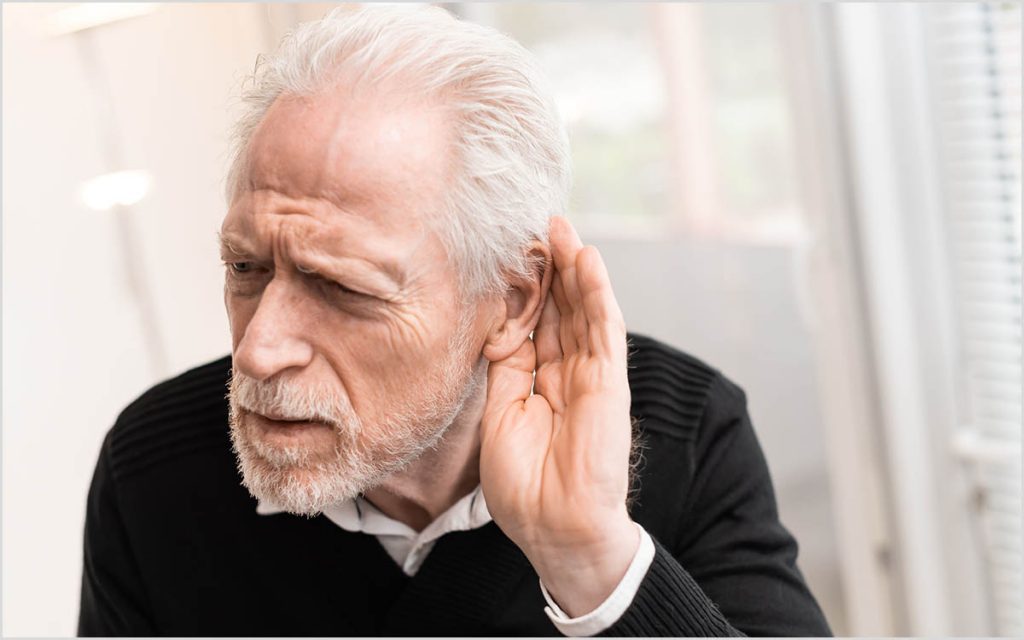Have you ever tried to ignore a toothache? They can get pretty rough. Eventually, you’re absolutely begging to go to the dentist. The same thing happens when your eyesight starts to lose focus. When you have trouble reading street signs, you’ll likely make an appointment with an ophthalmologist. The trouble is, you might not show quite so much urgency when your hearing starts to go.
And that could be a mistake. There are significant health issues (especially mental health issues) that can develop due to untreated hearing loss. Of course, you can only ignore your diminishing hearing if you’re actually aware of it. And that’s problem number two.
Signs you might have hearing loss
We tend to take our hearing for granted. A loud concert? No biggie. Blaring ear pods? That’s just how you enjoy your podcasts. But each of those decisions, especially in the long run, is going to have a significant impact on your overall hearing.
Unfortunately, those impacts may be difficult to detect. Hearing loss can creep up on you incrementally, with symptoms that progress so slowly as to be essentially invisible. That’s why it’s a good idea to know some basic red flags (and to make sure you don’t ignore them):
- Speech of those around you (friends, family, co-workers) sounds muffled or distorted
- You find yourself asking those around you to repeat themselves quite often
- You keep turning up the volume on your car stereo, your television, or your smartphone
- You consistently blow the speakers in your earpods because you have the volume up too high
- It’s challenging to follow conversations in noisy or crowded environments
- You have an especially hard time making out consonants when listening to everyday speech
- You encounter sudden problems with short term memory
- You feel an unexplained sense of exhaustion or have excessive trouble falling asleep at night
These signs, red flags, or warning signs are all fairly well known. If your hearing loss comes on especially slowly, your brain will immediately start compensating for any hearing loss that develops, making you somewhat oblivious, at first, to your symptoms. That’s why any of these warning signs should be taken seriously–which means you should make an appointment to see your hearing specialist.
What happens if you ignore your hearing loss?
Some people are, indeed, stubborn. Or they just don’t like the idea of wearing a hearing aid. They have this fear that wearing a hearing aid is some kind of immediate marker for old age (as though constantly asking someone to speak up is a signifier of unending youth). But that’s not really the case (most hearing aids can be quite discreet–and being able to converse fluently is a boon, too).
Still, it’s worth talking about what might happen if you ignore your hearing loss:
- Your hearing could get worse: Without a hearing aid or increased hearing protection, you’ll keep turning the volume on your television higher. Or you’ll keep going to rock concerts without any earplugs. Which means you’ll keep doing damage to your ears and your hearing will almost certainly continue to decline because of it.
- Your relationships could fray: There’s something that happens when you have a hard time understanding your friends and family: you stop talking to them. You stop saying hi, you stop checking in–you pull away. And that can damage some of those relationships, especially if no one has any idea that the root cause is hearing loss (and not some unspoken animosity).
- You could suffer from depression and cognitive decline: As your relationships fray and going out becomes more challenging, you might start to notice symptoms of depression. You may also start to experience some cognitive decline–without the auditory stimulation your brain is used to, certain changes start to take place within your neural physiology. This can lead to long term cognitive challenges if your hearing loss isn’t treated.
Don’t ignore your hearing loss
Clearly, ignoring your hearing loss can cause bigger and more substantial problems down the road. But the inverse is true: acknowledging and treating your hearing loss can improve your quality of life substantially. When you hear better, your relationships improve and your daily life seems more full. And increasing your awareness–either by seeing a hearing specialist or downloading a noise-monitoring app–can improve your overall hearing health.
Hearing loss is definitely a health condition you shouldn’t ignore. The sooner you find the right treatment, the happier you’ll be. Don’t wait until the proverbial toothache gets too painful to ignore.



